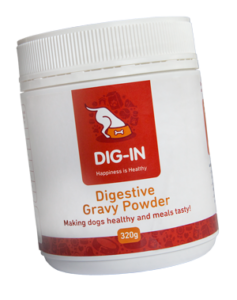 Dogs can sometimes vomit because they’ve eaten something disagreeable or gobbled down too much food, too quickly. But vomiting can also indicate something far more serious – your dog may have swallowed a toxic substance, or may be suffering from a condition that requires immediate medical attention. Potential causes of vomiting include:
Dogs can sometimes vomit because they’ve eaten something disagreeable or gobbled down too much food, too quickly. But vomiting can also indicate something far more serious – your dog may have swallowed a toxic substance, or may be suffering from a condition that requires immediate medical attention. Potential causes of vomiting include:
- Eating grass. Most dogs that eat grass are perfectly healthy and it can be a normal behaviour even if your dog tends to bring the grass back up afterwards. However, be mindful if your dog suddenly starts to eat lots of grass, as this can clump in the stomach and cause an obstruction.
- Ingesting a foreign body. Dogs can get stuck into all sorts of things, and that sometimes means they eat things that they really shouldn’t. This can include socks, toys, balls, and food-based items such as bone fragments or chunky dry treats. These items may cause an obstruction by lodging in the oesophagus, stomach or intestine. If you think your dog has eaten something inappropriate, visit your vet immediately.
- Gastroenteritis. Many vomiting dogs that have eaten something unpleasant do not have an obstruction. In these cases the cause of vomiting may be gastroenteritis, which is an inflammation of the gastro-intestinal system. These cases are often not serious and can be treated by rehydrating your dog and feeding them easily digestible food for a few days.
- Diet-related causes. A sudden change in your dog’s diet or a particularly rich meal can trigger a vomiting episode. Food intolerances, sensitivities to certain ingredients and eating leftovers can also cause an upset doggy tummy. Always consult your vet before you change your dog’s diet so that you can slowly transition the new food in and reduce the risk of a negative reaction.
- Toxins. In some cases vomiting is the best way for your dog to immediately expel an ingested toxin. Many substances are toxic to your dog including pest baits, grapes, chocolate, plant poisons and human medications. If you think your dog has eaten something potentially toxic, it’s important to get them to the vet as quickly as possible.
- Infection or disease. Vomiting can be a sign of a much larger health concern such as liver disease, kidney problems, pancreatitis, neurological disease, viral diseases, metabolic diseases (such as diabetes), and cancer.
- Heatstroke. Dogs have difficulty adjusting to extreme temperatures, especially when it’s hot. Extreme heat can cause heatstroke, which may lead to vomiting and seizures.
- Intestinal parasites. Parasites such as tapeworms or hookworms often lead to vomiting and diarrhoea, as the parasites tend to cause intestinal discomfort. Monitor your dog’s faeces for the presence of any worms or worm segments, and visit the vet for proper diagnosis and treatment.
- Side effect to medication. Dogs are prescribed many different medications each year and it is not uncommon for them to develop an upset stomach in response, particularly to strong antibiotics.
- Car sickness. Dogs often suffer from motion sickness, which can make car journeys very unpleasant for all involved. If your dog has to travel in the car for long periods and tends to suffer from motion sickness, your vet can prescribe medication to help.
While vomiting is never pleasant, if your dog has only vomited once or twice and otherwise seems bright and happy, it’s unlikely a cause for concern. However if you notice any of the following symptoms in conjunction with a vomiting episode, it’s important to give your dog immediate veterinary attention:
- Bloated abdomen or tenderness in the belly
- Ingestion of a toxic substance
- Breathing difficulty or excessive panting
- Foreign body ingestion
- Vomit which contains fresh or partially digested blood (which may look like ground up coffee)
- Extreme lethargy
- Pale, yellow or bluish-coloured gums
- Vomiting in a puppy, particularly one that is not vaccinated
- Vomiting in an elderly dog
- Bloody diarrhoea
Dogs make for wonderful companions, even if we sometimes have to wonder at their wild sense of culinary adventure and incredible ability to often ‘eat first and question later’. Because dogs will always be dogs, it’s important that you monitor your dog’s continued good health and take action if you suspect their vomiting is more than just an isolated incident.
A fantastic way to support your dog’s ongoing health is by adding Dig-In Digestive Gravy Powder into their daily meal. Our all-natural gravy powder provides your dog with essential nutrients, helps to boost their immune system, increases the growth of healthy bacteria in the stomach, and of particular interest to your dog – makes every meal taste great!






